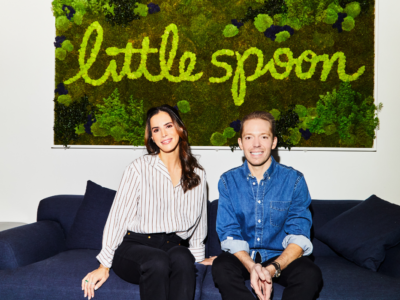Here’s the 411… the US does not have federal regulations in place for controlling toxic contaminants in baby food. Yes, it’s true. With that being said, it’s crucial that transparency and honesty with consumers is a guiding principle for kids’ foods brands, like Little Spoon. Little Spoon is the first and only baby food brand in the U.S. to set public, European Union (EU) aligned testing standards for more than 500 toxins and contaminants. And we’re just getting started—*mic drop*.
What are the heavy metals in question?
The “Big Four” heavy metals—arsenic, cadmium, lead, and mercury—represent the most concerning environmental contaminants under the broader umbrella of heavy metals. While numerous other metals exist in our environment, these four warrant particular attention due to their widespread presence and documented health impacts. Lead and arsenic have been most extensively studied, particularly regarding their presence in baby food, with Dr. Bruce Lanphear’s research demonstrating that lead exposure can significantly impact childhood development, potentially contributing to conditions like ADHD and OCD, with effects measurable through IQ scores. While these metals occur naturally in our environment—even in the cleanest soils—the critical focus isn’t on their mere presence but rather on controlling exposure levels, especially in vulnerable populations like young children.
What does the future of heavy metal regulation look like in the US?
The FDA continues to research heavy metals and develop action levels as a part of the Closer to Zero initiative, but no explicit regulations are in place today. The Baby Food Safety Act of 2023 currently sits on the congressional floor and aims to require government agencies to set limits for heavy metals in baby food. If that law is passed, those limits wouldn’t be finalized until 2027. While we wait for the regulatory landscape to catch up to parents’ calls for baby food transparency, Little Spoon has taken matters into their own hands by implementing rigorous testing standards and strict limits for toxins and contaminants, providing the peace of mind that parents deserve.
Is homemade baby food safer than store bought baby food?
According to Is This Normal expert, Dr. Sarah Habibi, preparing foods at home may reduce additional exposure to contaminants that would happen through processing procedures, the amount naturally found in the foods will remain. Preparing baby food at home may not be an accessible option to all parents, and FDA has acknowledged that preparing food at home is unlikely to reduce potential heavy metal exposure. Rather than focusing on making their own baby food, parents should strive to expose their children to a variety of foods including whole grains, proteins, and fresh fruits and vegetables. Setting a new gold standard in baby nutrition, Little Spoon’s commitment to transparency and whole foods shines through a carefully curated selection of nearly 100 USDA Certified Organic ingredients, ensuring each of their 40+ Babyblend flavors is not only delicious but held to a high standard for safety against harmful toxins and contaminants.



